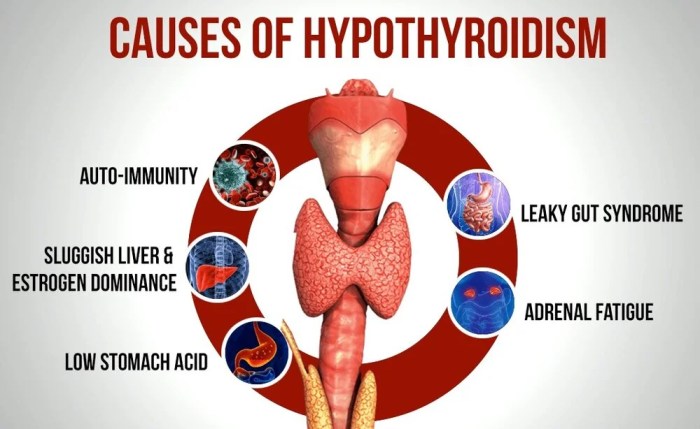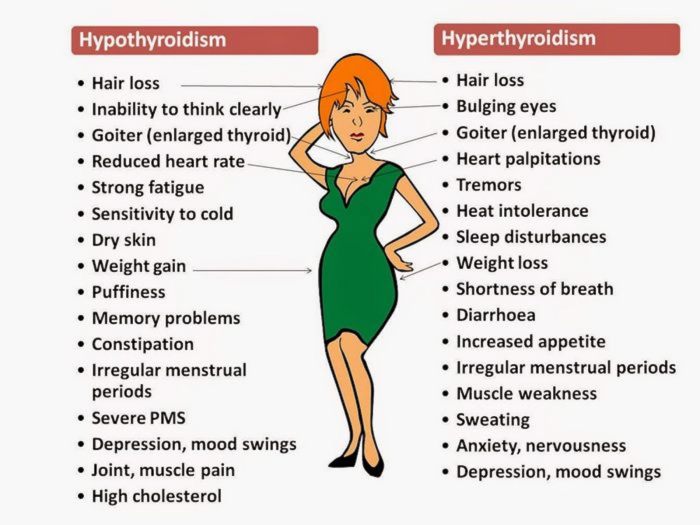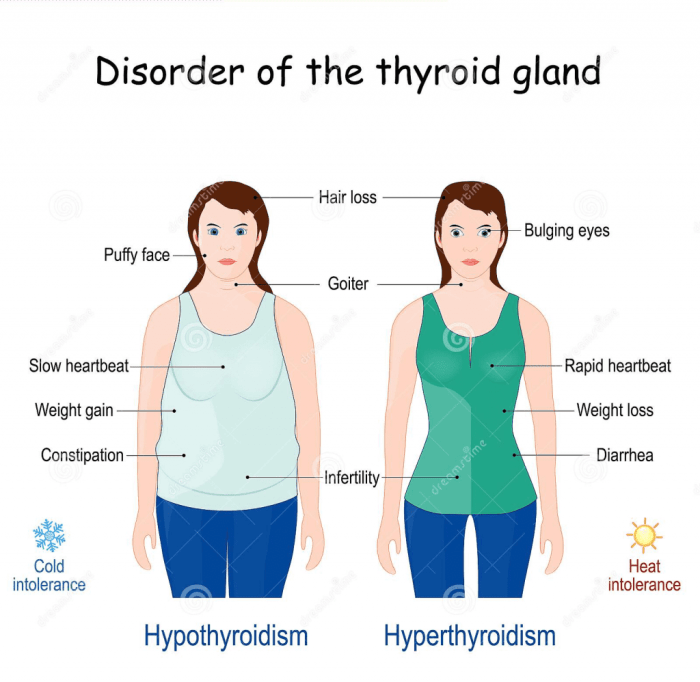Which of the following accompanies Hashimoto’s thyroiditis? This question delves into the intricate relationship between Hashimoto’s thyroiditis and its associated conditions, unraveling a tapestry of clinical manifestations, diagnostic intricacies, and therapeutic considerations. Join us as we embark on an exploration of this fascinating autoimmune disorder, deciphering its complexities with precision and clarity.
Hashimoto’s thyroiditis, an autoimmune condition targeting the thyroid gland, often manifests with a constellation of symptoms and comorbidities. Understanding the spectrum of conditions that accompany Hashimoto’s thyroiditis is crucial for comprehensive patient management and optimal outcomes.
Autoimmune Thyroid Disease

Hashimoto’s thyroiditis is an autoimmune thyroid condition, meaning it occurs when the body’s immune system mistakenly attacks its own thyroid gland.
Other autoimmune thyroid conditions include:
- Graves’ disease
- Postpartum thyroiditis
- Silent thyroiditis
These conditions are all characterized by inflammation of the thyroid gland, which can lead to a range of symptoms.
Clinical Manifestations

The symptoms of Hashimoto’s thyroiditis can vary widely, depending on the severity of the condition.
Common symptoms include:
- Fatigue
- Weight gain
- Constipation
- Dry skin
- Hair loss
- Menstrual irregularities
- Infertility
- Depression
- Anxiety
In some cases, Hashimoto’s thyroiditis can lead to hypothyroidism, which is a condition in which the thyroid gland does not produce enough thyroid hormone.
The symptoms of hypothyroidism are similar to those of Hashimoto’s thyroiditis, but they can also include:
- Cold intolerance
- Muscle weakness
- Slow heart rate
- Hoarseness
- Puffy face
The following table compares the symptoms of Hashimoto’s thyroiditis to those of other thyroid disorders:
| Symptom | Hashimoto’s Thyroiditis | Graves’ Disease | Hypothyroidism |
|---|---|---|---|
| Fatigue | Yes | No | Yes |
| Weight gain | Yes | No | Yes |
| Constipation | Yes | No | Yes |
| Dry skin | Yes | No | Yes |
| Hair loss | Yes | No | Yes |
| Menstrual irregularities | Yes | No | Yes |
| Infertility | Yes | No | Yes |
| Depression | Yes | No | Yes |
| Anxiety | Yes | No | Yes |
| Cold intolerance | No | No | Yes |
| Muscle weakness | No | No | Yes |
| Slow heart rate | No | No | Yes |
| Hoarseness | No | No | Yes |
| Puffy face | No | No | Yes |
Popular Questions: Which Of The Following Accompanies Hashimoto’s Thyroiditis
What is the most common symptom of Hashimoto’s thyroiditis?
Fatigue is the most frequently reported symptom, affecting a significant proportion of individuals with Hashimoto’s thyroiditis.
Can Hashimoto’s thyroiditis cause weight gain?
Yes, weight gain can be a symptom of Hashimoto’s thyroiditis due to the slowed metabolism associated with hypothyroidism.
Is Hashimoto’s thyroiditis curable?
While there is currently no cure for Hashimoto’s thyroiditis, appropriate treatment can effectively manage symptoms and restore thyroid hormone levels to normal.
